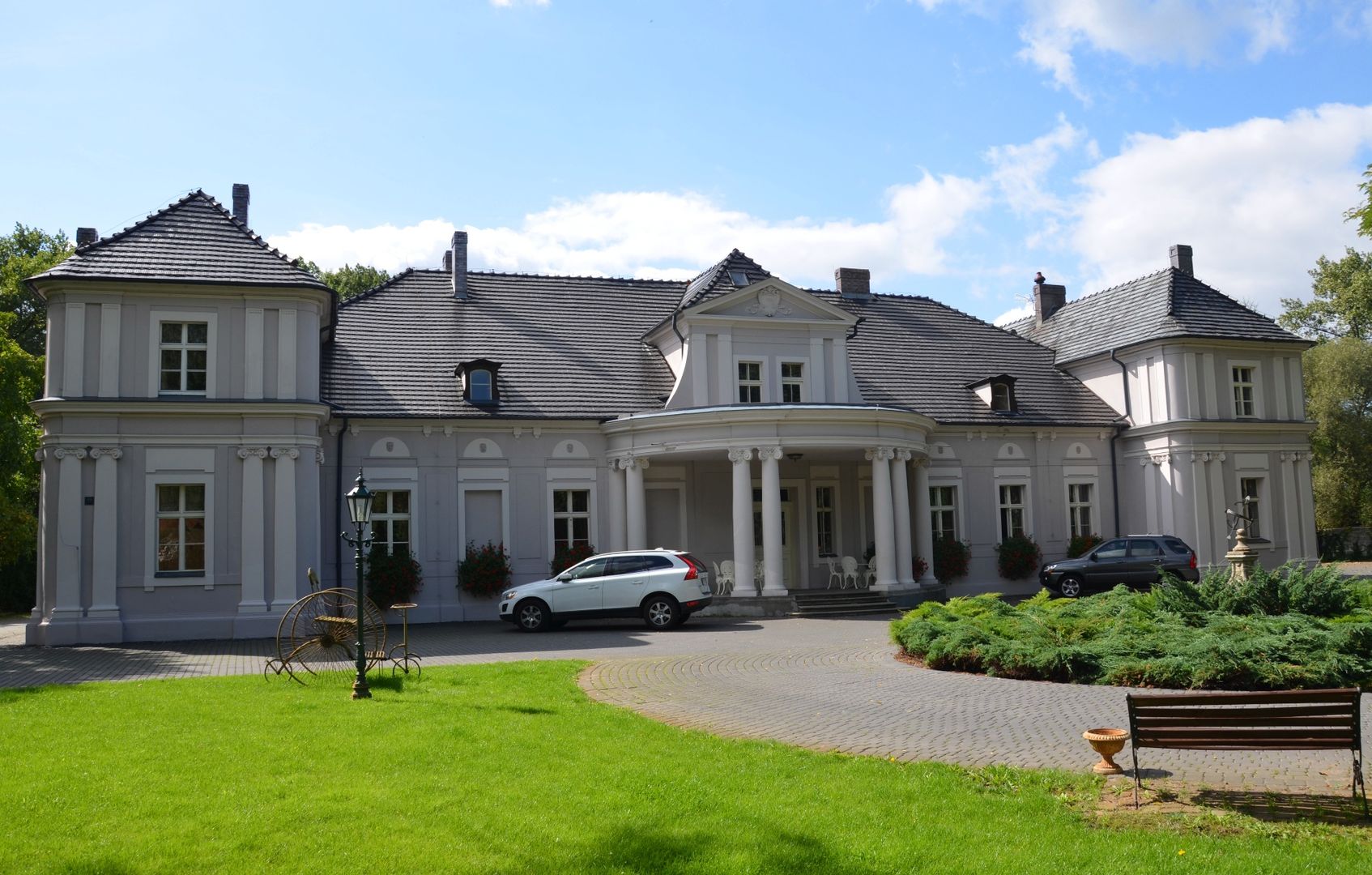Manor in Dakowy Mokre
6.65

Overview
The manor in Dakowy Mokre, located in the Greater Poland Voivodeship, is a Neoclassical monument built for Bolesław Potocki around 1880. Originally, the manor was a single-story structure with a columned porch on its main axis, but between 1912 and 1913, it underwent a major renovation commissioned by Count Maciej Mielżyński. This resulted in the addition of two-story wings and two porticos: a semicircular one on the northern side and a square one on the southern side. The manor changed ownership multiple times throughout its history, including after World War II, when it became the property of an Agricultural Production Cooperative. Today, it is privately owned and was converted into a hotel named *Dakowski Dwór*. The surrounding park covers an area of approximately 3 hectares and features preserved 19th-century tree stands, including an avenue of hornbeams.
The manor holds a dramatic historical event: on the night of December 19–20, 1913, Count Maciej Mielżyński shot and killed his wife, Felicja née Potocka, and her cousin Adolf Miączyński, suspecting them of having an affair. After being acquitted, Mielżyński took part in World War I and the Polish-Bolshevik War, and also led the Third Silesian Uprising. Until 2018, the manor operated as a hotel and restaurant; it now houses the *Czerwone Wino* Senior Residence. The history of the manor and the tragic fate of its former owners contribute to its unique cultural and historical significance in the region.
Location
2026 Wizytor | All Rights Reserved